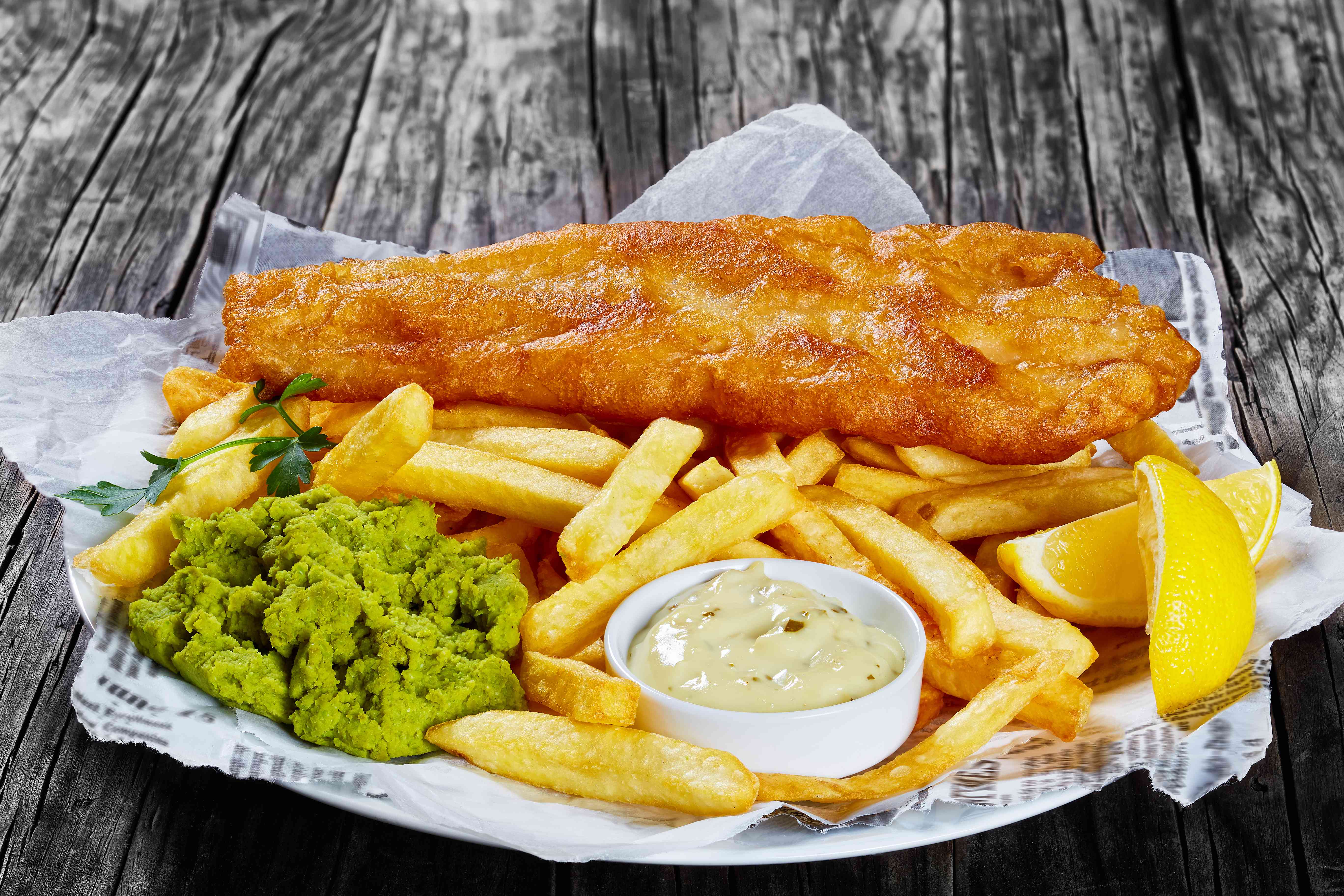Managing food safety is paramount for any organisation involved in food production. A Food Safety Management System (FSMS) is the linchpin ensuring that the entire process, from sourcing ingredients to delivering final products, adheres to stringent quality and safety standards. In this comprehensive guide from Frymax, the UK’s leading supplier of sustainable RSPO certified palm oil, we will look into FSMS, exploring its importance, purpose, key elements, and the critical role of Hazard Analysis Critical Control Point (HACCP) principles.
What is a Food Safety Management System?
A Food Safety Management System (FSMS) is a systematic and controlled approach designed to manage food safety throughout the entire food production and distribution process. It involves a structured set of procedures, processes, and principles that aim to ensure the safety and quality of food products. An FSMS encompasses activities from receiving raw materials to the final delivery of finished products and is often based on principles such as Hazard Analysis Critical Control Point (HACCP).
Key Elements of a Food Safety Management System
The key elements of an effective Food Safety Management System, according to ISO 22000, include:
- Interactive Communication: Building trust and communication between stakeholders in the supply chain, such as suppliers and consumers.
- System Management: Ensuring the effectiveness of the FSMS through principles like customer focus, leadership, and evidence-based decision-making.
- Prerequisite Programs: Basic conditions and activities necessary for maintaining food safety, including Good Manufacturing Practices (GMP), Good Agricultural Practices (GAP), and Good Hygienic Practices (GHP).
- Hazard Analysis and Critical Control Points (HACCP): Core principles involving hazard analysis, determining critical control points, setting critical limits, implementing monitoring procedures, establishing corrective actions, verification procedures, and record-keeping.
Why is a Food Safety Management System Important?
An FSMS is crucial for several reasons:
- Legal Compliance: It is a legal requirement for organisations involved in food production to have an FSMS in place to comply with food safety regulations and standards.
- Consumer Safety: Ensures that food products are safe for consumption, reducing the risk of foodborne illnesses and protecting the health and well-being of consumers.
- Regulatory Standards: Compliance with international standards such as ISO 22000 and national regulations like the Food Safety Act 1990 (UK) is facilitated through the implementation of an FSMS.
- Risk Mitigation: Identifies and addresses potential hazards at critical control points, minimising the risk of contamination or unsafe food handling practices.
- Quality Assurance: Provides assurance to consumers, stakeholders, and regulatory bodies that the organisation is committed to producing safe and high-quality food products.
What is the Purpose of a Food Safety Management System?
The primary purpose of a Food Safety Management System is to ensure that food is safe for consumption and does not pose a threat to public health. Additionally, the purposes include:
- Preventing Outbreaks: Mitigating the risk of foodborne illnesses and preventing outbreaks that can harm consumers and damage the reputation of the food business.
- Compliance: Meeting legal and regulatory requirements to avoid legal consequences and penalties associated with non-compliance.
- Documentation: Providing a systematic approach for documenting and managing all aspects of food safety processes, from hazard analysis to corrective actions.
- Continuous Improvement: Facilitating continuous improvement by regularly reviewing and updating procedures to enhance the effectiveness of food safety measures.
Who is Responsible for Implementing Food Safety Management Systems?
The responsibility for implementing Food Safety Management Systems falls on the shoulders of the entire organisation, with specific roles designated to ensure effective implementation. Key individuals include:
- Top Management: Responsible for demonstrating commitment to food safety, allocating resources, and setting the overall direction for the FSMS.
- Food Safety Team: Comprises individuals with expertise in food safety, including a designated Food Safety Manager, responsible for overseeing the implementation of the FSMS.
- Employees: All staff members are responsible for adhering to established food safety procedures, maintaining hygiene, and actively participating in the FSMS.
5 Steps of the Food Safety Management System
Identify Needs, Scope, and Objectives:
- Identify food safety hazards.
- Define the scope and limitations of the FSMS.
- Set SMART objectives to address identified needs.
Establish a Food Safety Policy:
- Outline the management structure for achieving FSMS objectives.
- Develop procedures for handling complaints, incidents, and recalls.
Develop a Hazard Control Plan:
- Create plans for each food product, detailing hazards, risks, and control measures.
- Establish acceptable levels and critical limits for hazards.
Follow Prerequisite Programs:
- Implement and regularly audit programs such as GMP, GAP, and GHP.
- Address areas like purchasing management, pest control, and food waste management.
Measure the Effectiveness of the System:
- Continuously review and improve the FSMS.
- Assess whether objectives have been met within the set timeline.
- Solicit feedback from employees and stakeholders.
What is HACCP?
Hazard Analysis Critical Control Points (HACCP) is a systematic approach to identifying, evaluating, and controlling potential hazards in food production. It involves seven principles:
- Identify Potential Hazards: Analyse all possible risks related to food safety.
- Determine Critical Control Points (CCPs): Identify control points for each potential hazard.
- Establish Critical Limits: Define limits for each CCP.
- Implement Monitoring Procedures: Develop procedures for consistently monitoring CCPs.
- Establish Corrective Actions: Devise a plan for addressing issues with CCPs.
- Verification Procedures: Implement systematic checks to ensure the effectiveness of procedures.
- Keep Records: Maintain comprehensive records of hazards, CCPs, procedures, and verification.
The Benefits of a Digital Food Safety Management System
Given the complexity of managing numerous Critical Control Points (CCPs), procedures, and records, a digital solution proves invaluable. It provides secure, accessible documentation, facilitates real-time reporting, and is particularly beneficial for global operations.
In conclusion, a robust Food Safety Management System is indispensable for ensuring food safety, compliance with regulations, and maintaining consumer trust. By integrating HACCP principles, employing digital solutions, and adhering to key elements, businesses can navigate the complex landscape of food safety successfully. Regular reviews and a commitment to continuous improvement are fundamental for the sustained efficacy of the FSMS.
Frymax – The UK’s trusted supplier of all-natural sustainable palm oil
Step into the world of culinary professionals who have relied on Frymax, the preferred supplier of cooking oil for fryers for more than six decades! As dedicated suppliers to restaurants, chippies, food trucks, and hotels throughout the UK, we take pride in delivering exceptional client services and adhere to the highest levels of food safety. Frymax stands as your ultimate solution – a premium, 100% natural, and sustainable palm oil tailor-made for deep frying, with less than one percent trans fatty acids.
Our palm oils, certified by the Roundtable on Sustainable Palm Oil (RSPO), not only boast purity but are also devoid of additives, allergens, GM ingredients, and hydrogenated oils, ensuring suitability for every kitchen. Maintaining an exceptional standard for 60 years, we’ve garnered the loyalty of customers who have stood by us for over a quarter-century. If you’d like to learn more or purchase RSPO certified palm oil for your restaurant, get in contact with Frymax.
Join us today as a Frymax member, and unlock exclusive content, expert frying advice, and exciting competition opportunities! Your culinary journey deserves the best.






